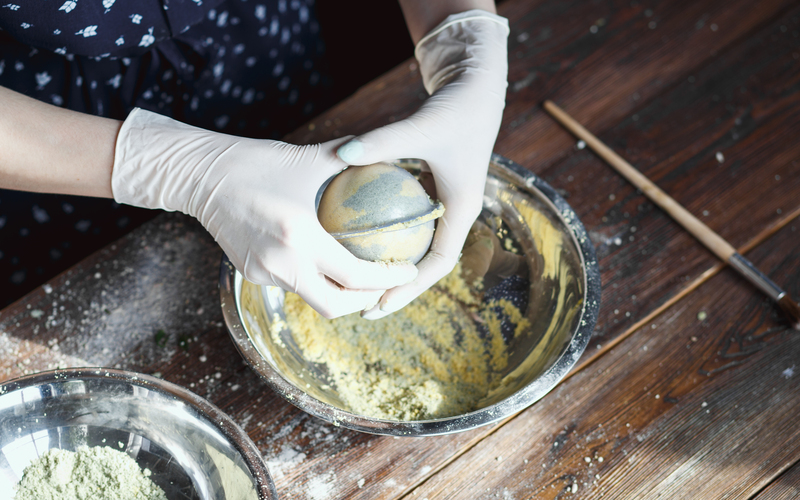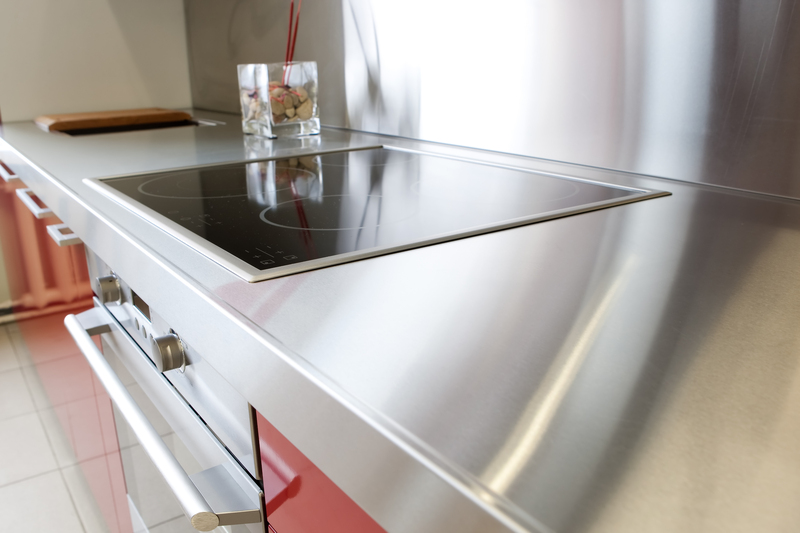The Essentials of Effective Jewellery Cleaning at Home
Posted on 22/08/2025

The Essentials of Effective Jewellery Cleaning at Home
Cleaning your jewellery at home doesn't have to be a daunting task. Whether it's a cherished heirloom, your wedding band, or a favourite piece you wear every day, maintaining its brilliance is crucial. In this comprehensive guide, we'll delve deep into the essentials of effective jewellery cleaning at home, equipping you with proven techniques and professional tips for a sparkling, long-lasting collection.
- Why Clean Jewellery at Home?
- Understanding Your Jewellery: Materials Matter
- Basic Home Jewellery Cleaning Techniques
- How to Clean Different Types of Jewellery
- Common Mistakes to Avoid in At-Home Cleaning
- Professional Jewellery Cleaning vs. Home Cleaning
- Jewellery Care Tips for Longevity
- FAQs About Cleaning Jewellery at Home
- Conclusion: Shine Bright at Home
Why Clean Jewellery at Home?
Jewellery pieces accumulate grime, oils, lotion, and dust through regular wear. If not cared for, even the finest jewels can look lacklustre. By cleaning jewellery at home:
- You restore its original shine and brilliance
- You prolong its lifespan by removing potential damaging substances
- You prevent buildup that can weaken clasps, settings, or chains
- You maintain good hygiene, especially on pieces worn daily
In essence, effective at-home jewellery cleaning is both a cosmetic and practical necessity.
Understanding Your Jewellery: Materials Matter
Before diving into home jewellery cleaning methods, it's vital to know what each piece is made of. Different stones and metals require different care:
Metals
- Gold: Soft and resistant to tarnish, gold can be cleaned often but must be handled gently.
- Silver: Prone to tarnishing; requires regular gentle polishing.
- Platinum: Durable but can still accumulate grime and scratches.
- Costume Jewellery (plated metals): Needs extra care as plating can wear off easily.
Gemstones
- Diamonds: Tough and can handle most cleaning methods.
- Opals, Pearls, and Emeralds: Delicate and porous, requiring special care.
- Sapphires and Rubies: Sturdy but should still be cleaned with a gentle approach.
Tip: Always consult the original box or certificate, when available, for explicit care instructions for your jewellery.
Basic Home Jewellery Cleaning Techniques
There are several tried-and-tested techniques for effective jewellery cleaning at home. Here's a closer look at the most trusted methods:
1. Warm Water and Mild Soap
The simplest and safest cleaning solution for most jewellery involves warm water and a few drops of mild dish soap.
- Fill a small bowl with warm (not hot) water.
- Add a gentle dish soap.
- Soak jewellery for 10-20 minutes.
- Gently brush with a soft toothbrush.
- Rinse under lukewarm water.
- Pat dry with a lint-free cloth.
Note: Avoid submerging soft gemstones and pearls as water can cause damage.
2. Baking Soda Paste
Great for tarnished silver or sturdy gems. Mix three parts baking soda, one part water. Apply paste with a cloth, gently rub, rinse, and dry.
3. Vinegar and Water Solution
Suitable for solid gold (without gemstones). Mix equal parts vinegar and water, soak the piece for 10-15 minutes, then rinse and dry thoroughly.
4. Professional Jewellery Cleaning Cloths
A jewellery cleaning cloth is infused with special cleaning agents--perfect for quickly buffing gold and silver pieces.
How to Clean Different Types of Jewellery at Home
Every piece, whether gold, silver, diamond, or costume, requires a tailored approach. Here's how to clean different jewellery types safely and effectively:
Gold Jewellery
- Soak in warm soapy water for 15 minutes.
- Wipe gently with a cotton swab or soft cloth.
- Use a jewellery-specific polishing cloth for extra shine.
Tip: Never use harsh abrasives or bleach as these can damage gold's surface.
Silver Jewellery
- Apply a paste of baking soda and water, rub gently.
- Alternatively, use a silver polish or cleaning cloth designed for silver.
- For stubborn tarnish, line a bowl with aluminium foil, add baking soda and hot water, and soak the piece. The foil and baking soda create a chemical reaction to lift tarnish.
Diamond Jewellery
- Soak in a solution of one part ammonia with six parts water for a few minutes (avoid on delicate settings).
- Gently scrub with a soft toothbrush.
- Rinse well and pat dry.
Pearls and Soft Gemstones
- Never soak pearls or soft, porous gemstones.
- Wipe each pearl individually with a damp cloth and let them air dry on a towel.
Costume and Plated Jewellery
- Wipe with a soft, barely damp cloth.
- Avoid any cleaning solutions and do not soak as it can lift the plating or loosen glue.
Common Mistakes to Avoid in At-Home Jewellery Cleaning
While the essentials of effective jewellery cleaning at home are simple, there are pitfalls to be wary of:
- Using Toothpaste or Baking Soda on Delicate Stones: While good for silver, they can scratch soft gems.
- Soaking Porous Stones: Stones like pearls, opals, and turquoise can absorb water and get damaged.
- Bleach and Harsh Chemicals: Corrosive substances can erode metals and fade gemstones.
- Ultrasonic Cleaners: While effective for diamonds and gold, these can loosen settings or damage fragile stones.
- Excessive Brushing: Over-scrubbing, even with soft brushes, can loosen stones or damage settings over time.
- Not Rinsing Properly: Soap or cleaning solution residues can dull surfaces.
Professional Jewellery Cleaning vs. Home Cleaning
While jewellery cleaning at home is safe for most pieces, certain situations require a professional touch:
- Antique or valuable pieces may have fragile settings.
- Heavily tarnished or soiled jewellery that does not respond to at-home methods.
- Pieces with significant sentimental or financial value.
Professionals use ultrasonic machines, steam cleaners, and expert polishing techniques. However, for everyday cleaning and maintenance, the right at-home practice is usually sufficient.
Jewellery Care Tips for Longevity
Maintaining jewellery isn't just about cleaning. Consider these jewellery care tips to keep your collection sparkling:
- Store Properly: Use soft-lined boxes or pouches to prevent scratches and tangling.
- Remove When Necessary: Take off jewellery before swimming, gardening, or manual tasks.
- Avoid Contact with Chemicals: Keep jewellery away from perfumes, lotions, and household cleaners.
- Regular Inspections: Check clasps and settings for any sign of wear or loosening.
- Clean Regularly: Build a routine so you never wait too long before your next clean.
Pro tip: A quick wipe with a jewellery cloth after each wear is the best defence against buildup.
Frequently Asked Questions About Cleaning Jewellery at Home
- How often should I clean my jewellery?
It depends on wear frequency. Everyday pieces: every 1-2 weeks. Special occasion jewels: every few months. - Can I clean all jewellery the same way?
No. Gold, silver, diamonds, and costume jewellery all require different cleaning approaches. - Is ultrasonic cleaning safe?
Only for non-porous stones and simple metal pieces. Avoid for fragile, antique, or set gems. - Why does my silver jewellery tarnish?
Tarnishing is a natural chemical reaction between silver and sulphur in the air. Regular cleaning buffers against this. - Can I use household cleaners?
Avoid strong chemicals. Use only mild soap or recommended solutions.
Conclusion: Shine Bright at Home
Mastering the essentials of effective jewellery cleaning at home is all about understanding the unique needs of your collection. With the right tools and proven techniques, you can ensure each piece remains dazzling for years to come. Remember: gentle methods, regular cleaning routines, and a little extra care go a long way.
Embrace these expert tips, and keep your treasured jewellery sparkling without ever leaving home!





